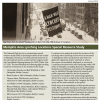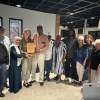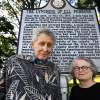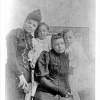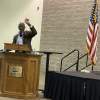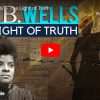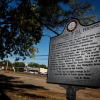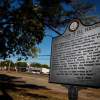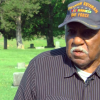Memphis Area Lynching Locations Special Resource Study
The National Park Service is conducting a special resource study (SRS) on lynching locations in the vicinity of Memphis, Tennessee, for their potential inclusion in the national park system, as directed by Congress under the Consolidated Appropriations Act, 2023 (Public Law 117-328).
The law identified the following eight lynching locations in Tennessee to be included in the study:
• Christopher Bender and Bud Whitfield in 1868 (Memphis, Shelby County)
• Wash Henley in 1869 (Memphis, Shelby County)

